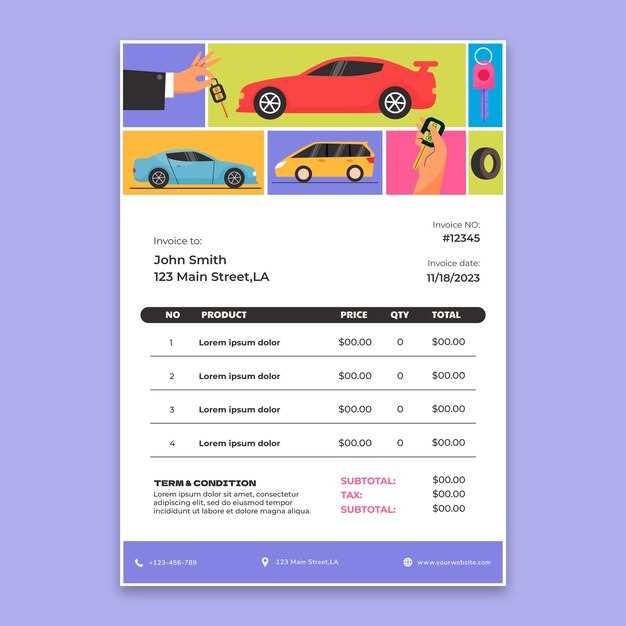
Purchasing a car specifically for track use is a thrilling venture for any motorsport enthusiast. However, it is not as simple as picking any vehicle off the lot. The unique requirements and characteristics of a race car demand careful consideration and research to ensure optimal performance and safety on the track.
As you embark on the journey to acquire your track-only car, having a comprehensive checklist becomes essential. This guide will walk you through the critical factors to evaluate, ensuring you choose the right car that meets your racing aspirations. From performance capabilities to weight distribution and safety features, understanding what makes a successful track car will enhance your racing experience.
Every decision, from the brand to the model, plays a significant role in how well your car will perform on the circuit. Therefore, whether you’re a seasoned racer or a newcomer eager to hit the asphalt, equipping yourself with the appropriate knowledge before making a purchase is crucial. With a well-structured checklist, you can make informed choices that align with both your driving style and competitive goals.
Identifying Your Specific Racing Needs
When considering a track-only car, it’s crucial to clearly define your specific racing needs. Understanding your goals will help you make informed decisions that align with your racing style and the type of events you intend to participate in.
First, determine the type of racing you want to engage in. Whether it’s circuit racing, time trials, or endurance events, your purpose-built car should reflect the demands of the discipline. Each racing format will require unique characteristics in a vehicle, such as weight distribution, aerodynamics, and power output.
Next, assess your experience level. If you are a seasoned driver, you may prefer a more focused and high-performance setup. However, novice drivers might benefit from a car that offers easier handling and feedback. Finding the right balance between performance and drivability is essential for maximizing your experience on the track.
Consider the budget available for modifications. A purpose-built car often requires an array of aftermarket parts, from suspension upgrades to enhanced braking systems. Establishing a clear budget will aid in prioritizing essential modifications that cater to your racing needs without compromising your financial stability.
Evaluate the track conditions where you will primarily race. Different tracks have varying surfaces and configurations that can influence your car’s setup. A vehicle optimized for a smooth circuit may not perform as well on a bumpy track or one that features significant elevation changes.
Additionally, examine the level of competition you expect to face. If you are racing against highly competitive drivers, a more advanced purpose-built car may be necessary to keep pace. Conversely, if the competition is less intense, a simpler setup could be sufficient to meet your goals.
Finally, think about the frequency of use. If you plan to race regularly, investing in durability and reliability will be paramount. Choose components that withstand rigorous driving conditions to ensure your car remains functional and safe throughout multiple events.
By thoughtfully identifying your specific racing needs, you can tailor your purchase to enhance your performance and enjoyment on the track, ensuring a rewarding racing experience.
Key Features to Look for in a Dedicated Race Car

When selecting a race car, enthusiasts should prioritize features that enhance performance and safety, ensuring the vehicle is truly purpose-built for the track. Key elements include a lightweight chassis, which contributes to faster acceleration and improved handling. Look for materials like carbon fiber or aluminum that reduce weight without compromising strength.
Engine performance is critical; opt for units that deliver high horsepower and torque while maintaining reliability under racing conditions. Advanced fuel injection systems and turbocharging can provide significant power boosts. Additionally, pay attention to the engine’s cooling system, ensuring it can handle prolonged high-stress situations without overheating.
Suspension systems play a vital role in a race car’s handling capabilities. Adjustable coilover shocks and struts allow fine-tuning to suit specific track conditions, offering better grip and stability. Performance brakes, including larger discs and multi-piston calipers, are essential for quick and efficient stopping power, crucial for competitive racing.
Safety features cannot be overlooked; a dedicated race car should include a roll cage, racing seat, and harnesses to provide driver protection during high-speed maneuvers and potential crashes. Additionally, fire suppression systems are important for safety, reducing the risk of injury in case of fire incidents.
A purpose-built vehicle often incorporates advanced telemetry systems to monitor performance metrics in real-time. Features like tire pressure monitoring and lap timing can provide valuable insights, enabling drivers to optimize their performance during races.
Finally, ensure the vehicle meets specific racing regulations and class requirements. This includes adherence to weight limits, safety standards, and technical specifications, which vary across different racing series. A comprehensive understanding of these guidelines will help in selecting a suitable race car that not only performs well but is also legal to race in your chosen events.
Budget Considerations for Your Race Car Investment

When investing in a race car, establishing a clear budget is essential. This ensures that enthusiasts can manage costs effectively while pursuing their passion for motorsport. Start by determining your overall financial limit, taking into account both the initial purchase price and ongoing expenses. Prices for race cars can vary significantly depending on brand, specifications, and condition. Have a realistic estimate of how much you can allocate without compromising your financial stability.
Next, consider additional costs associated with owning a race car. This includes maintenance, repairs, and upgrades that enhance performance and safety. Regular servicing is vital, as track conditions can lead to wear and tear. Allocate funds for spare parts and emergency repairs to avoid disruptions during racing seasons.
Your budget should also accommodate safety gear. Essential items like helmets, racing suits, and harnesses are crucial for protection on the track. Investing in high-quality safety equipment not only protects you but also enhances your overall racing experience.
Don’t overlook the financial implications of track day fees, transportation of your car, and potential entry fees for races. These costs can add up quickly, so include them in your budget calculations. If you plan on hiring a team or coach for support, factor in their fees as well.
Finally, consider resale value. Some race cars appreciate over time, while others may depreciate quickly. Research the market trends of your chosen model to make a more informed purchase decision. By carefully planning your budget and anticipating future expenses, you can enjoy your racing experience without financial strain.
